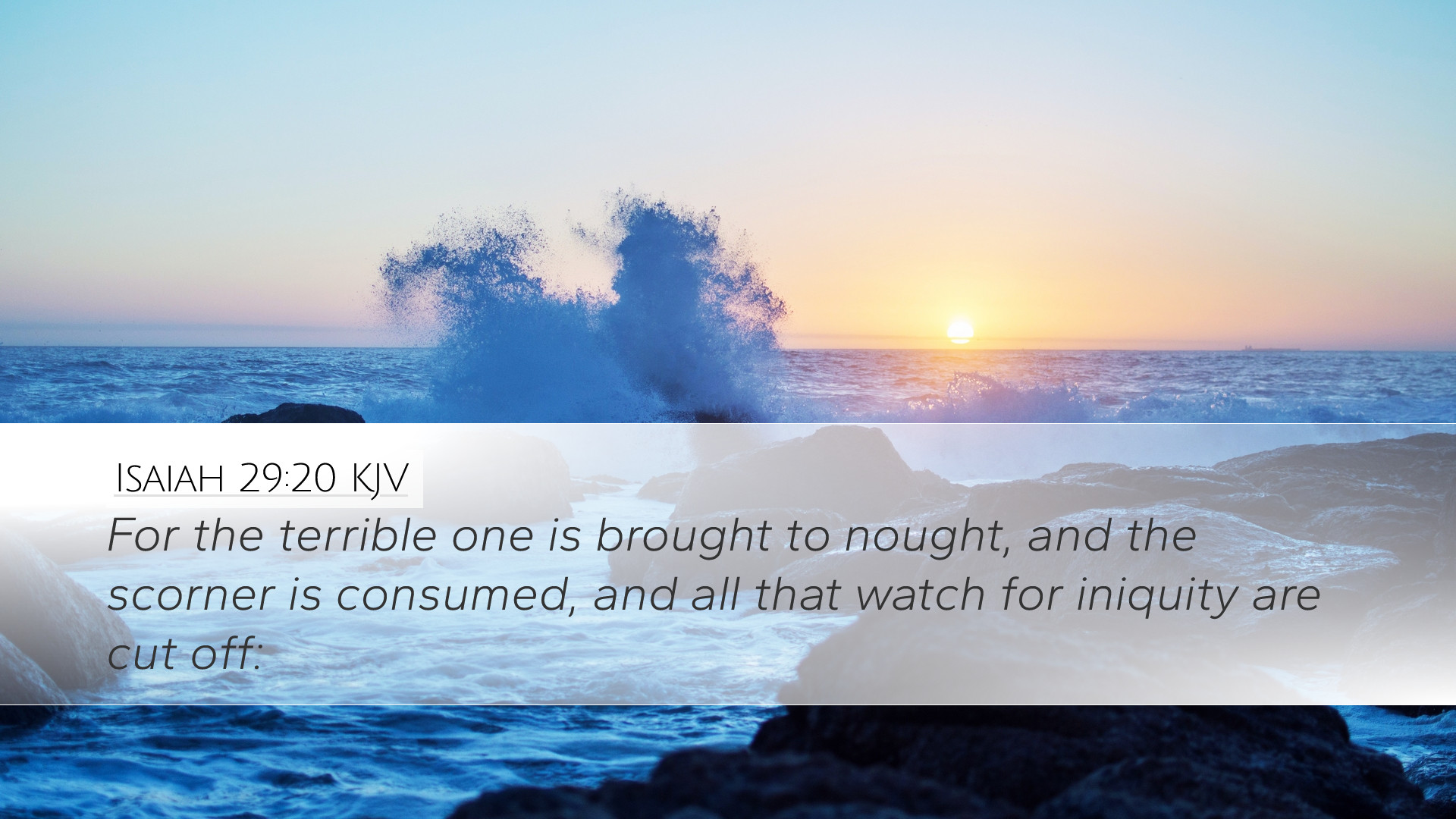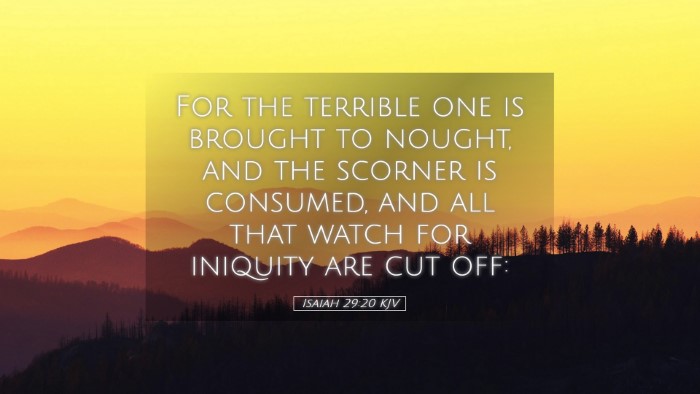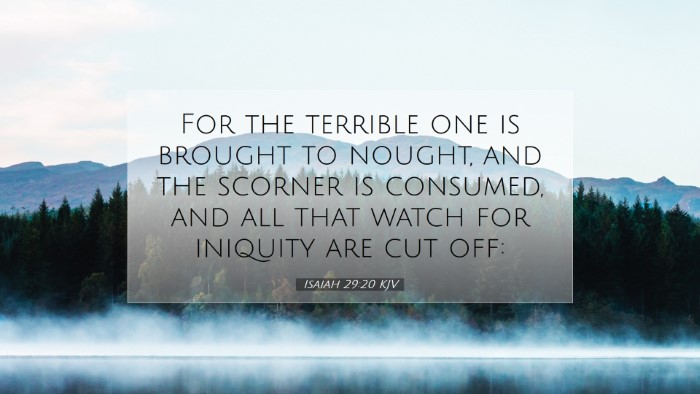Commentary on Isaiah 29:20
Isaiah 29:20 states: "For the terrible one is brought to naught, and the scorner is consumed, and all that watch for iniquity are cut off." This passage encapsulates the prophetic assurance of divine judgment against those who oppose God’s people and His righteousness. The following commentary brings together insights from notable public domain commentaries, offering a comprehensive study for pastors, students, theologians, and Bible scholars.
Contextual Background
The Chapter 29 of Isaiah is set against a backdrop of impending judgment on Jerusalem and the surrounding nations. Isaiah addresses the spiritual blindness and complacency of the people, asserting that true understanding and deliverance will come from the Lord. The "terrible one" and "scorner" emphasize the adversarial forces against which God's people struggle.
Commentary Insights
-
Matthew Henry:
Henry identifies "the terrible one" as representative of oppressors and those in power who instill fear through tyranny. He notes the significant shift in power dynamics as God’s promise to bring them to nothing comes to fruition. This underscores the theme of divine sovereignty where God ultimately prevails over human arrogance.
-
Albert Barnes:
Barnes reflects on the "scorner" as one who mocks the faithful and lives in blatant opposition to God’s law. He emphasizes that this verse offers comfort, proclaiming that mocking and opposition will be met with divine retribution. His commentary highlights a vital truth that God does not allow such iniquity to go unpunished, ensuring that justice prevails.
-
Adam Clarke:
Clarke elaborates on the phrase "those who watch for iniquity," suggesting this refers to those who are actively plotting evil against the righteous. He draws attention to God's promise to neutralize their schemes. Clarke's interpretation reinforces the assurance believers have that their God shields them from harm and will thwart the plans of the wicked.
Theological Implications
The verse speaks profoundly to the nature of God's justice. It assures believers that the forces of evil, though they may appear dominant now, will inevitably face defeat. This truth is foundational for pastoral teachings, offering hope in times of oppression and struggle.
Practical Applications
From this scripture, we can derive several practical applications:
- Believers should remain steadfast in faith, trusting that God will intervene in instances of injustice.
- The community of faith should actively resist and confront evil, embodying the principles of justice and righteousness.
- Pastors and leaders should encourage reflection on God’s past deliverances as a source of faith for future trials.
Conclusion
Isaiah 29:20 serves as a potent reminder of God’s ultimate authority over all earthly powers and schemes against His people. The convergence of insights from Henry, Barnes, and Clarke provides a rich tapestry of understanding that can encourage and equip believers in their spiritual journey. Through this passage, we reaffirm our hope in divine justice and sovereignty, bolstering our commitment to live out our faith in a world often contrary to God’s will.


